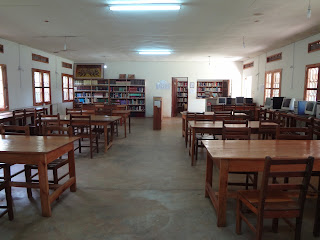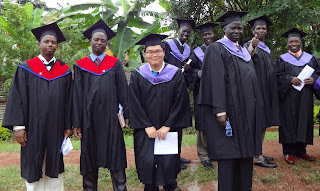For example, this year I am often tempted to think that:
- I am not an expert leader or librarian.
- There are colleagues in my department who are much more skilled in talking about information literacy, institutional culture, departmental goals, and at interacting with administration.
- I am not an expert at reference interviews and I am not good at teaching classes.
If I am willing, new things can also help me learn about myself and my strengths. Not feeling like an expert doesn't mean I am bad at those things. I am learning that while I may not always consider myself an expert librarian, I am really good at doing certain things which help my department and students. If I don't focus on these good things I am easily intimidated, wondering if I am the right person for this leadership role or for the library. (My poor husband has talked me off the "I'm quitting my job!" ledge more than once this academic year.)
So, in order to focus on the positive, here is a list of things I have discovered and re-discovered this school year:
- I am getting really good at writing diplomatic emails and seeing the good in what everyone is saying and doing. I like to find the middle ground!
- I am good at helping students who need only a little encouragement and help.
- I am really good at (and really enjoy!) chat reference -- helping students online via chat service.
- I am good at listening to my colleagues when they need to talk.
- I am an energetic teacher and good at explaining things simply and directly. I don't use big words...and that's ok!
- I really enjoy working with English language learners.
- I'm good at welcoming the sheepish, "I'm new to the library" or "I have a stupid question" students.
So, there you have it. My attempt at positive self talk.
I am learning so much about myself and about leadership this year. And about how to believe in myself when I feel inadequate and overwhelmed. But I am reminding myself to focus on the positive and on my strengths.
And I am reminding myself (again and again!) that doing hard things, the things that scare me or feel overwhelming, are always worth doing.
 | |
| I feel so out of my comfort zone lately. So here's a reminder of a time I was totally in my element: in Africa. :) |












